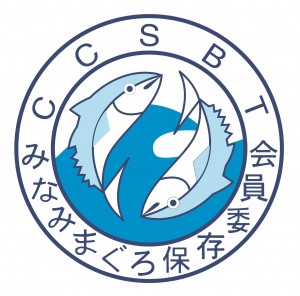The Albatross and Petrel Agreement will kick off its 2019 round of meetings in Florianópolis, Brazil next week with a one-day strategy workshop on Sunday 5 May to discuss and develop ways for ACAP to engage with tuna Regional Fisheries Management Organisations (tRFMOs). ACAP has signed Memoranda of Understanding (MoUs) with the five existing tRFMOs and attends and contributes to their meetings every year, as regularly reported in ACAP Latest News.
The objectives and rationale for the workshop as set out in the preparatory document follow:
“Workshop objective: Identify the most effective and efficient ways to engage with tuna Regional Fisheries Management Organisations (RFMOs) to deliver on ACAP conservation objectives (2019-2022).
Workshop rationale: ACAP and ACAP Parties, along with other stakeholders such as BirdLife International and Humane Society International, have been active in engaging with tuna RFMOs (and other RFMOs) for circa fifteen years, in order to reduce bycatch of ACAP species.
In the early period (2005-2012), engagement focused on promoting adoption by tuna RFMOs of seabird conservation and management measures plus subsequent refinement (13 seabird CMM iterations adopted during this period). 2012 was the milestone when all five tuna commissions had adopted measures to require their pelagic longline vessels to use some combination of bycatch mitigation measures in (most) areas overlapping with albatross distribution.
In 2012-2018, ACAP and other stakeholders broadened engagement with tuna RFMOs to seek improvement in bycatch data collection and reporting requirements and to promote plans to review the impact of the seabird CMMs, as well as working to support pelagic longline fleets to implement the seabird CMMs. There were also further refinements to seabird CMMs, with four seabird CMMs adopted in this period, three of which were in WCPFC [Western and Central Pacific Fisheries Commission].

Commission for the Conservation of Southern Bluefin Tuna (CCSBT), one of the five tRFMOs with which ACAP has a Memorandum of Understanding
However, data presented to tuna RFMOs indicate that bycatch rates of ACAP species remain high, while tuna RFMOs have identified that bycatch data collection and reporting remains inadequate for monitoring bycatch levels. In February 2019, a global seabird bycatch estimation workshop was conducted as part of the Common Oceans ABNJ Tuna Project, generating an estimate of current seabird bycatch levels in the global pelagic longline fleets in the Southern Hemisphere. In light of this, 2019 is an important moment to assess how best to engage and support global pelagic longline fleets in order to reduce bycatch of ACAP species.
The core elements that the workshop will cover are:
(i) Share views on strengths and weaknesses of using tuna RFMOs as a means to enhance bycatch reduction of ACAP species,
(ii) Based on (i), identify the aspects of seabird bycatch mitigation that are best addressed via tuna RFMO structures versus via engagement at country or fleet level.
(iii) For those aspects identified in (ii), identify the most effective approaches to successful engagement with tuna RFMOs, including what types of meetings to engage with, what inputs will be most effective, who may be best placed to undertake which role,
(iv) Prioritise which tuna RFMOs to engage with, and
(v) Provide feedback on the draft ACAP RFMO Strategy (SBWG9 Doc 07), to be presented at the SBWG9 meeting.”
The results of the workshop will be communicated to the Ninth Meeting of ACAP’s Seabird Bycatch Working Group (SBWG9) which will commence its three-day meeting the next day.
Click here to access the workshop’s preparatory document.
John Cooper, ACAP Information Officer, 02 May 2019

 English
English  Français
Français  Español
Español